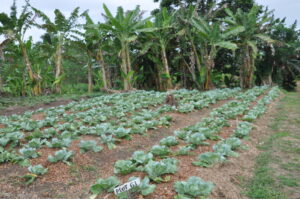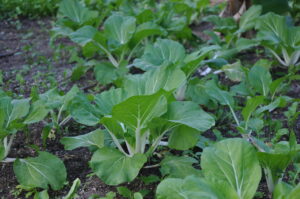
Organic Agriculture is a production system that sustains the health of soils, ecosystems and people. It relies on ecological processes, biodiversity and cycles adapted to local conditions, rather than the use of inputs with adverse effects. Organic Agriculture combines tradition, innovation and science to benefit the shared environment and promote fair relationships and a good quality of life for all involved.
International Federation of Organic Agriculture Movements
The definition of organic farming recognises the direct connection between our health and how the food we eat is produced. Strict regulations, known as ‘standards’, define what organic farmers can and cannot do – and place a strong emphasis on the protection of the environment. In the Pacific organic growers are guided by the Pacific Organic Standard.
Organic farmers take a holistic, principled approach that respects and harnesses the power of natural processes to build positive health across the ecology of the farm. The Pacific Organic Standard and organic training in the Pacific encourages farming families to consider taking lessons from natural ecological systems in their agricultural practice such as how nutrient cycles maintain soil fertility in forests; soil protection and cover in forests; and how diversity and eco-balance in forests is maintained.
Organic farming methods offer the best, currently available, practical model for addressing climate-friendly food production. This is because it is less dependent on petrochemical-based fertilizers and pesticides and builds resilience in the face of climatic extremes and changes. It also stores higher levels of carbon in the soil.

In organic farming: